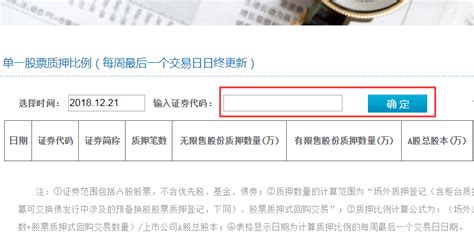查询股票交易佣金怎么查
Title: Understanding Stock Market Transactions: A Guide for Investors
Stock market transactions are the backbone of equity trading, enabling investors to buy and sell shares of publicly traded companies. These transactions occur on stock exchanges, where buyers and sellers meet to execute trades. Understanding how stock market transactions work is crucial for investors looking to participate in the financial markets.
There are two primary types of stock market transactions:
The process of executing stock market transactions involves several steps:
Several factors can influence stock market transactions:
- Market Conditions: The overall state of the stock market, including factors such as supply and demand, investor sentiment, and economic indicators, can impact trading activity.
- Company Performance: The performance of individual companies, including their financial results, business outlook, and industry trends, can affect the buying and selling of their shares.
- Regulatory Environment: Regulatory changes and government policies can influence investor behavior and trading activity in the stock market.
- News and Events: Significant news events, such as earnings reports, mergers and acquisitions, geopolitical developments, and macroeconomic data releases, can trigger buying or selling activity.
For investors looking to participate in stock market transactions, it's essential to follow these guidelines:

- Do Your Research: Before buying or selling stocks, thoroughly research the companies you're interested in, including their financials, management team, competitive positioning, and growth prospects.
- Set Realistic Goals: Define your investment objectives, risk tolerance, and time horizon. Develop a welldefined investment strategy based on these factors.
- Diversify Your Portfolio: Spread your investments across different asset classes, industries, and geographic regions to reduce risk and maximize returns.
- Monitor Your Investments: Regularly review your portfolio performance and stay informed about market developments that may impact your investments.
- Consult with Professionals: Consider seeking advice from financial advisors or investment professionals who can provide personalized guidance based on your financial situation and goals.
Stock market transactions play a vital role in the functioning of financial markets, providing investors with opportunities to buy and sell shares of publicly traded companies. By understanding the process of stock market transactions and following sound investment principles, investors can make informed decisions and achieve their financial goals.
This guide provides a comprehensive overview of stock market transactions, covering types, processes, influencing factors, and guidelines for investors. Whether you're new to investing or looking to deepen your understanding of the stock market, this guide serves as a valuable resource.
股市动态
MORE>- 搜索
- 最近发表
-
- 新闻集团,媒体帝国的兴衰与未来
- 股票002518,科士达的财富密码
- 探索股票600366,投资新星还是过眼云烟?
- 日元对人民币汇率今日解析,理解货币汇率的动态和影响
- 恒隆地产,城市发展的引擎与商业地产的标杆
- 达实智能,引领未来,打造智慧生活
- 北塔软件,企业IT管理的智能之选
- 掌握财富密码,建行纸黄金走势图的奥秘
- 中宝投资,探索投资新机遇,实现财富增值
- 蓝科高新股票,投资潜力与风险分析
- 探索中融人寿,您的家庭财富守护者
- 探索沧州大化吧,一个化工爱好者的线上乐园
- 平安最好的意外险,为您的明天保驾护航
- 股票000002,探索万科A的奥秘,投资路上的明灯
- 守护未来,深入了解中国平安养老保险
- 深入解析滨江集团股票,投资价值、市场表现与未来展望
- 工银新材料新能源,引领绿色革命的先锋力量
- 沪农商行股票投资分析,未来涨幅预测与投资策略
- 宏利人寿,您的财富守护者与未来规划师
- 远期外汇交易,解锁全球贸易的金融钥匙





